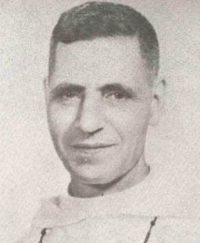In a hurried trip I made through northern Luzon, I have observed that this region is more peaceful and normalized. The people are occupied in their domestic chores, particularly those who live far from the mountains where recalcitrant elements are still hiding. If not for the lack of transportation and the shortage of prime commodities, conditions would have been as normal as they were before the war. There is less opposition to the new regime and less fear of soldiers who, in fact, do not interfere in civilian affairs. Furthermore, there is a healthier business atmosphere. However, this does not signify that the new masters have won the sympathy of the people. The people’s apparent submissiveness is merely due to fear, the desire for a peaceful life, or the awareness that a violent opposition is useless or prejudicial to their interests. They maintain a certain peace which could shift scenes at any moment.
Travel, far from being pleasant, is a sacrifice. As in the streetcars of Manila trains and buses are overflowing with passengers crammed in aisles and running boards. They move at a carabao’s pace and it takes almost twelve hours from Manila to Baguio. The zigzag road has been closed to traffic for the last two months after the longer bridge was burned. Baguio is full of sick and wounded soldiers, undoubtedly brought in from other fronts.
In Manila, there is likewise a frantic search for buildings to house the sick and convalescing soldiers. The De la Salle College is almost completely occupied, and the Brothers have transferred their classes to Sta. Scholastica’s College. They wanted us to cede more space in Letran, but with the intervention of the Spanish Consul, we succeeded in preventing the take-over. The Jesuit Fathers have received a notice to vacate the Ateneo which was sheltering some three hundred American and Filipino students and seminarians. The Philippines is being converted into a general hospital for the Japanese army in the South Pacific.
